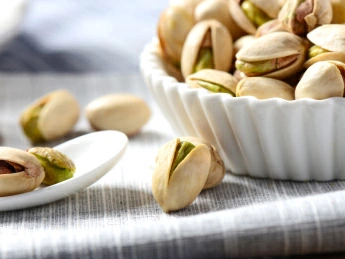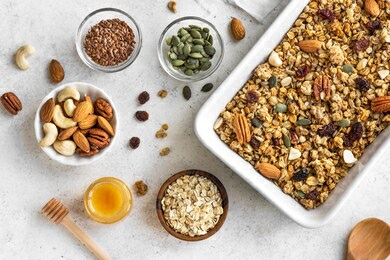Health has emerged as one of the most vital concerns for people, with the rise in living standards and shifts in lifestyle, health issues such as metabolism disorders and obesity have gradually come into prominence. A balanced diet combined with appropriate exercise can effectively promote weight loss and aid in managing body weight. In our daily diets, there are often misconceptions, with many people believing that nuts, due to their high fat content, are detrimental to weight reduction. In the United States, as many as 87% of individuals perceive that consuming nuts (including pistachios) and similar foods can lead to an increase in body weight or body fat.


Although not directly involved in the study, Dr. Mike Roussell, a nutrition expert from American pistachio growers, expressed his opinion on the findings, stating, "Metabolic syndrome poses a challenge for both young and old alike, which is why researchers are continually seeking simple, everyday habits that can help improve people's health. Eating pistachios is now emerging as one such habit."
Furthermore, the researchers in this study also observed that over the 16-week period, participants who consumed two one-ounce servings of mixed nuts (including pistachios) daily did not experience any significant changes in their energy intake or body weight. These findings align with previous research indicating that consuming up to 15-20% of daily calories from pistachios does not lead to weight gain. The researchers demonstrated the impact of nut consumption on weight by ensuring that the participants' daily caloric intake matched their daily caloric expenditure.

"Scientists also noted that participants in the nut group, compared to the carbohydrate group, were able to utilize fat more efficiently for energy production. This may explain why those who consumed nuts did not gain weight or body fat during the study period," added Dr. Roussell, further interpreting the research findings.
Moreover, past studies have indicated that the caloric intake from consuming pistachios is approximately 5% less than previously believed.
"Historically, when individuals aim to lose weight, they avoid high-fat nuts like pistachios. However, this study challenges that notion. Multiple studies from various regions around the world have shown that adding a daily serving of pistachios does not lead to weight gain. In fact, for many, it may even aid in weight loss," he suggested.

If you're planning to adopt new health, fitness, or nutrition habits in 2024, pistachios make an ideal food or meal companion. You can create a nutritious blend of mixed nuts with pistachios, cocoa nibs, and dried fruits, offering a versatile mix of savory and sweet flavors. American pistachios are also a complete plant-based protein source. A single serving of pistachios (1 ounce or 49 nuts) is an excellent source of copper and a good source of protein, fiber, vitamin B6, phosphorus, and thiamine.
(Images from the internet)





